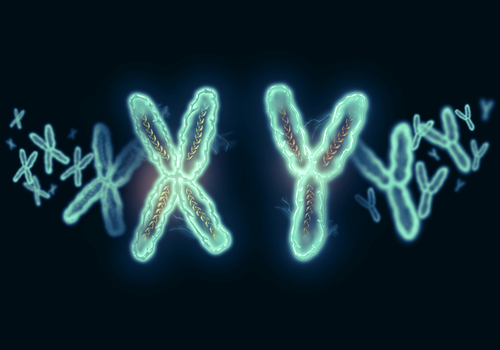New method could overcome genetic male infertility
IANS Aug 18, 2017
Using a stem cell technique for sperm creation, scientists have created healthy offspring from genetically infertile male mice, offering a potential new approach to tackling a common genetic cause of human infertility.

Our sex is determined by the X and Y chromosomes. Usually, girls have two X chromosomes (XX) and boys have one X and one Y (XY), but approximately one in 500 boys are born with an extra X or Y.Having three rather than two sex chromosomes can disrupt formation of mature sperm and cause infertility.In a study published in the journal Science, scientists at Francis Crick Institute in London and Kyoto University in Japan described a way to remove the extra sex chromosome to produce fertile offspring. If the findings can be safely transferred into humans, it might eventually be possible for men with Klinefelter syndrome (XXY) or Double Y syndrome (XYY) who are infertile to have children through assisted reproduction using this technique.
"Our approach allowed us to create offspring from sterile XXY and XYY mice," said first author Takayuki Hirota from the Francis Crick Institute. "It would be interesting to see whether the same approach could one day be used as a fertility treatment for men with three sex chromosomes," Hirota said.The team took small pieces of ear tissue from XXY and XYY mice, cultured them, and collected connective tissue cells known as fibroblasts. They turned the fibroblasts into stem cells and noticed that in the process, some of the cells lost the extra sex chromosome. With an existing method, they used specific chemical signals to 'guide' the stem cells into becoming cells that have the potential to become sperm.
These cells developed into mature sperm when injected into the testes of a host mouse.The researchers then harvested these mature sperm and used them through assisted reproduction to create healthy, fertile offspring.In a preliminary experiment, the team found that stem cells produced from fibroblasts of men with Klinefelter syndrome also lost the extra sex chromosome.However, more research is needed before this approach could ever be used in humans, the researchers pointed out.
-
Exclusive Write-ups & Webinars by KOLs
-
Daily Quiz by specialty
-
Paid Market Research Surveys
-
Case discussions, News & Journals' summaries